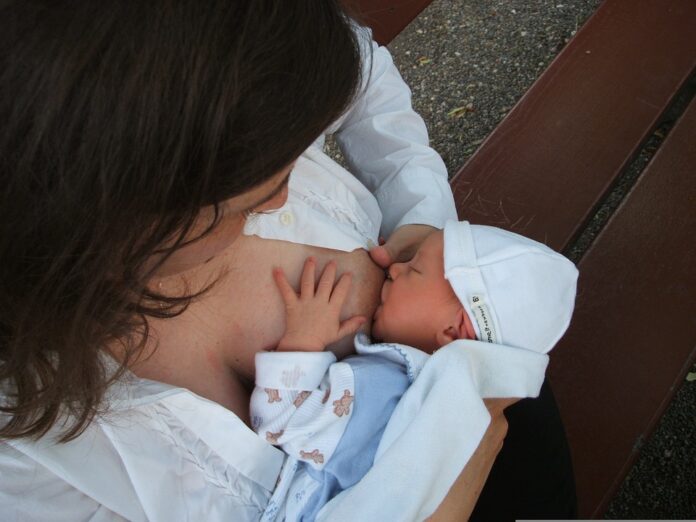The infant stage is a crucial part of a child’s development. They might be a breastfed baby or one given formula in a baby feeding bottle in the first few months. In this period, more growth occurs as your baby grows older, which demands changes in feeding.
Setting your baby feeding schedule early helps to lay down the path for their exploration of a variety of foods later. If you are uncertain how to organise this, read on as we talk about the infant feeding schedule.
What is the Infant Feeding Schedule?
An infant feeding schedule is ideal for managing a baby’s nutrition. Failure to set this task properly will mean dehydration, feeding, and overfeeding. Both extremes are detrimental to a baby’s health, growth, and development. As parents, feeding babies should be fulfilled with certain guidelines best for their developmental stage.
If you plan to use a baby feeding bottle to give your baby formula, their feeding schedule should be based on the type of formula, how often they need to be fed, and the amount required per feed.
Some employed parents may find it difficult to keep up with an infant’s feeding schedule. They can consider preparing baby feeding bottles of formula ahead of time or using a breast pump to have milk stored for when they are not around.
Infant’s Hunger Cues
Whether you are an expectant mother or have just given birth, the schedule to feed an infant is one of your priorities. To accomplish it, be aware of how they manifest hunger.
Crying is not only the hint to monitor. Besides, you don’t need to wait for your baby to cry. It would be hard to calm them down. Look for these hunger cues that give the impression that your baby is hungry.
- Leaning toward your breast or a bottle
- Sucking on hands or fingers
- Opening their mouth
- Sticking out of the tongue
- Puckering their lips
- Head turning to look for breast milk or formula.
In the First Few Months
Ideally, all newborn babies should be nursed or fed eight to twelve times per day for the first few months. This frequency may mean feeding them every 1.5 to 3 hours.
As they get older, like four to eight weeks, the frequency may shift from 7 to 9 times. The recommended interval is every 2 to 3 hours if fed by formula through a baby feeding bottle.
Observe their growth spurts and needs. They could be asking for more as your baby grows fast. Below are your good reference:
- 7-14 days
- 3-6 weeks
- Four months
- Six months
If you breastfeed your baby, continue it at least for one year or when they show signs of readiness for weaning:
- More interested in solid foods
- Prefers to drink using a cup
- Can take food using a spoon
- Able to use their hands and eyes to direct objects toward their mouth.
- Able to swallow food.
Babies Expert’s Advice
- Let babies determine the timing and length of their feeds to get what they need.
- Feed them responsively as they grow older. Watch over the cues they give. It helps them to become healthier both in emotional and cognitive functioning.
- The feeding schedule is an evolutionary thing in perspective. It cannot be strictly set but do minor tweaking to keep babies happy and healthy.
- Babies vary in needs. One may need more food intake to be more active, so treat them as unique individuals.
- Breast milk caloric content also varies in density as time rolls by. The possibility is that some babies may demand more frequent feeding if their mother’s milk has less amount of fat to fill in their energy.
- In the first four months, give only solid foods upon the advice of a healthcare provider. The main reason is breast milk or formula gives him all the nutrients needed. It is also perceived that giving him solid food earlier can lead to overfeeding and being overweight.
Feeding Schedule for Breastfed Infant
Monitoring and following through with an infant’s feeding schedule is challenging. Sometimes sleeping hours and duration can interfere with the intervals. So, it is important to know how to address this issue.
The Truth
Inside the womb, the baby’s life revolves around sleeping most of the time. By nature, he is nourished steadily round the clock from the food you eat.
As soon as he is born, he faces new adjustments. It can be a drastic change for him. There’s a need for him to learn to wake up and ask for his food.
Eating and sleeping are his first two tasks to master in this physical world. That’s why you watch for his hunger and sleeping cues.
Calories Intake
Each feeding infant can take in 40 to 80 calories. By estimates, the frequency of feeding on average is from 6 to 8 each day. This renders a sleeping cycle of 2 to 4 hours intervals, day and night. So, if your infant sleeps more, be aware that it is not a healthy reality. But if he falls asleep in the above range and intervals, be ready to adapt to more sleepless nights. His developmental stage demands it to have him grow into a healthy baby.
Your infant is unique, and you must address his needs and behaviours accordingly. One thing you shouldn’t do is compare him with others. Focus on his healthy growth. The baby’s sleep-wake cycle will stabilise in time.
Final Thoughts
Nurturing infants is a journey that can’t be based solidly upon opinions. Asking for paediatrician advice is the safest guide to go through. An infant’s feeding schedule is best accomplished by following what babies have devised for themselves. Your readiness to adapt to their sleep-wake cycles must be morally applied.









